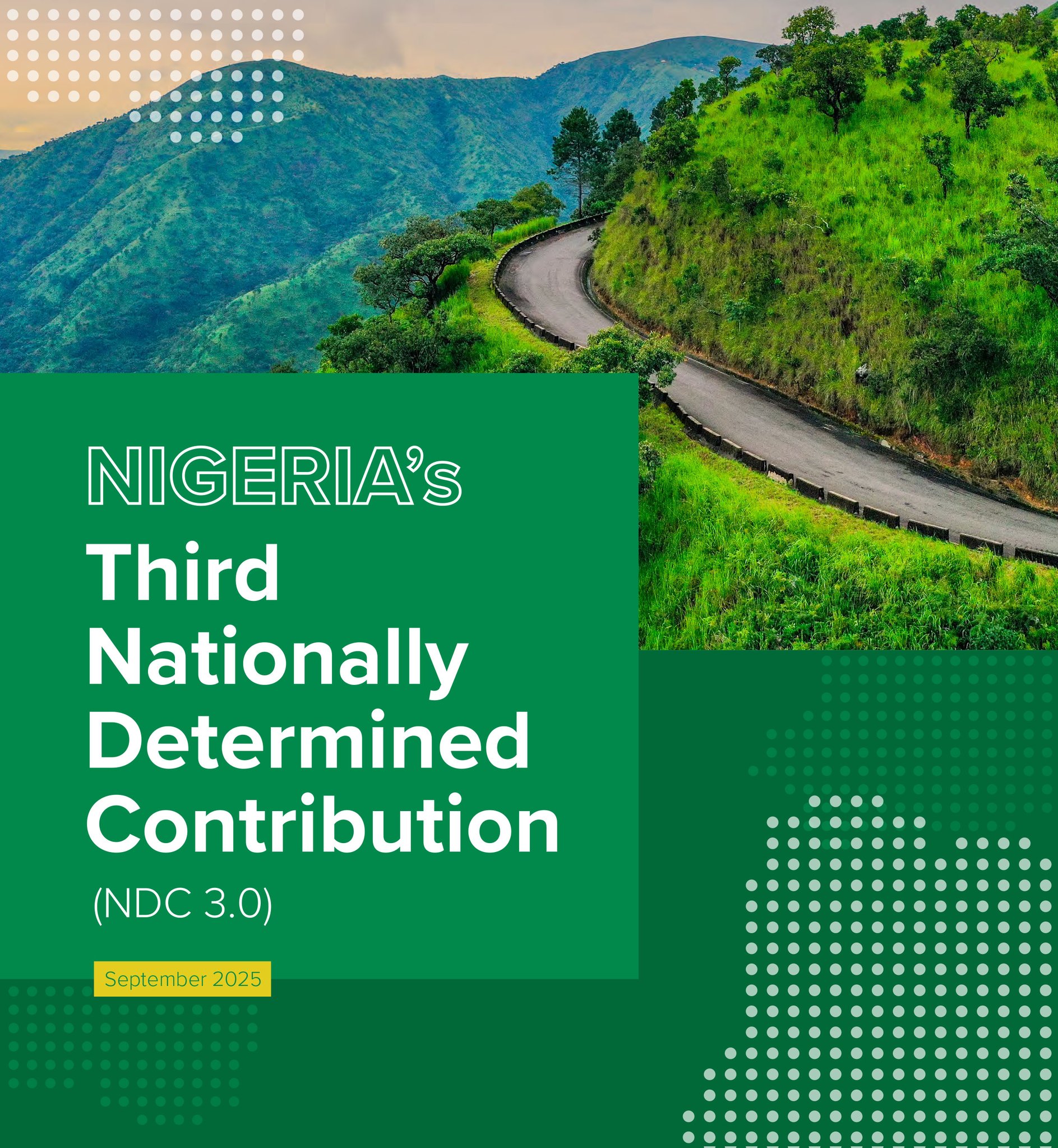By danivert
Copyright thesun

…EU, partners in support
From Fred Ezeh, Abuja
Nigeria has officially submitted its third Nationally Determined Contribution (NDC 3.0) under the Paris Agreement, thus setting out an updated and more ambitious climate commitment ahead of COP 30 in Brazil.
This marks a significant milestone in the country’s climate journey, achieved in time as the first country in West Africa, positioning Nigeria to better align its climate goals with long-term development priorities.
The European Union (EU) and its Member-States welcomed the step, thereby underscoring their continued engagement with Nigeria by recently organising the EU Green Diplomacy Week.
The EU said it has been sharing its experience and will continue to do so in the area of long-term strategies, transparent governance, and institutional coordination.
Speaking at the EU–Nigeria NDC roundtable, on Tuesday, in Abuja, the Head of Green and Digital Economy Section at the EU Delegation to Nigeria and ECOWAS, Inga Stefanowicz, said the dialogue reflects the shared commitment of both parties to advance climate ambition through partnership.
He explained that the Green Diplomacy Week was something that EU celebrated every year because it brings together partners to discuss climate change, the environment, and shared objectives. “This year is particularly important, as it marks 10 years since the adoption of the Paris Agreement.
“For us at the EU, it is an opportunity to reflect on collective progress while recognising that much more still needs to be done,” she said.
She noted that while the EU has made significant progress in reducing emissions, global cooperation remains essential. “Within the EU, we have reduced emissions by nearly 40 per cent since 1990 and are on track to achieve our 2030 target of a 55 per cent reduction. But this is not something we can achieve alone. As we push forward within the EU, we are also working closely with our international partners. We are here to support, collaborate, and share experiences that strengthen trust and accountability in the global process.”
Stefanowicz further highlighted the importance of robust measurement of emissions for market credibility and investment, both domestic and international.
“The Monitoring, Reporting, and Verification (MRV) system is a cornerstone of the internationally adopted climate framework. It ensures transparency, enhances credibility, and builds the trust needed for effective climate policy.
“A strong MRV system is inevitable for both public and private climate finance, supports evidence-based policymaking, and lays the foundation for successful carbon markets. This is something Nigeria is now taking forward, and the EU is proud to support that journey.”
Minister of Environment, Balarabe Abbas Lawal, represented by Mrs.Halima Bawa-Bwari, reaffirmed Nigeria’s determination to translate ambition into measurable action, insisting that ambition alone is not enough. “We must demonstrate progress with clarity and confidence.
“For Nigeria, a robust MRV system ensures accountability by tracking emissions, converting targets into measurable outcomes, and unlocking climate finance by assuring partners of real impact. It also enables data-driven policies that deliver smarter interventions and maximise socio-economic benefits.”
She added that addressing institutional challenges requires strong partnerships and sustained collaboration.
“We have a unique opportunity to co-create a world-class MRV architecture that reflects Nigeria’s realities while meeting global standards. We recognise the progress already made by the National Council on Climate Change (NCCC) and other ministries and agencies. But we also acknowledge the remaining gaps, such as fragmented data, weak coordination, and limited capacity.
“Overcoming these requires a holistic approach and the continued support of partners such as the European Union.”
Omotenioye Majekodunmi, Director-General of the NCCC, stressed that technical systems must be underpinned by cooperation and inclusivity. “We are here to make progress in implementing the Paris Agreement and our NDC commitments. To do this, we need MRV systems that effectively track progress across Nigeria’s diverse governance and economic structures.
“Cooperation at all levels, national, subnational, and international, is essential. Strengthening capacities, building skills, and ensuring sustained support are all critical to meeting evolving global climate reporting requirements,” he said.
The EU–Nigeria exchange, held as part of Green Diplomacy Week, provided a platform for dialogue between the EU, Nigerian government institutions, civil society, and the private sector on how to effectively prepare and implement the new NDC.
“It also explored how Nigeria’s commitments can be further aligned with the Paris Agreement, the National Development Plan, and its long-term net-zero vision.
“With NDC 3.0, Nigeria is taking concrete steps to raise its climate ambition, the EU’s ongoing support ensures the process is anchored in real data and widespread coordination, signalling a shared commitment to a healthier, more secure, and prosperous future,” he added.